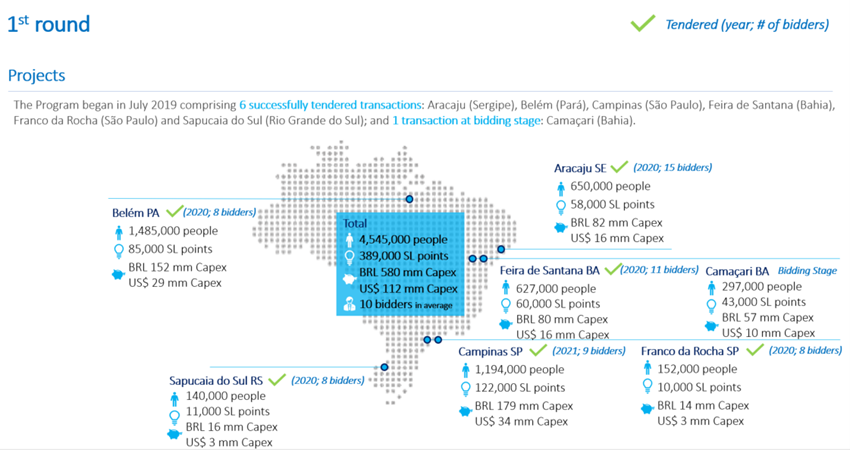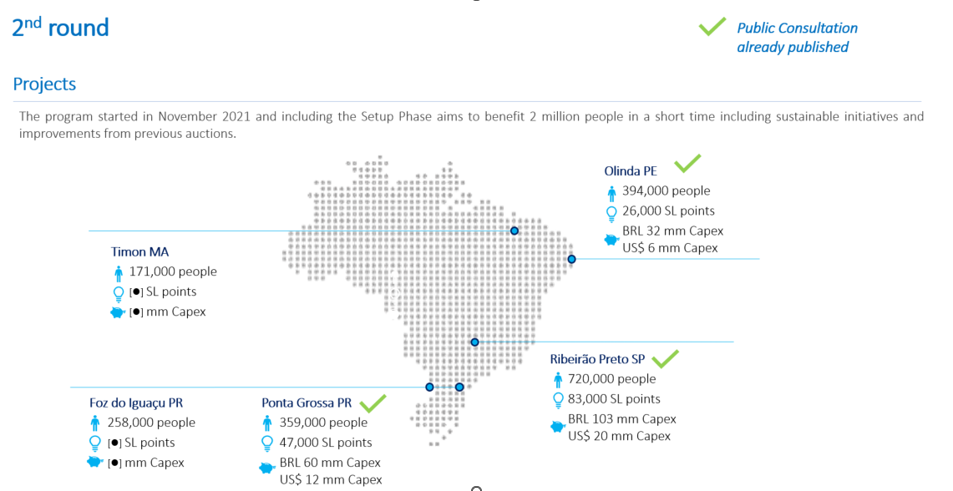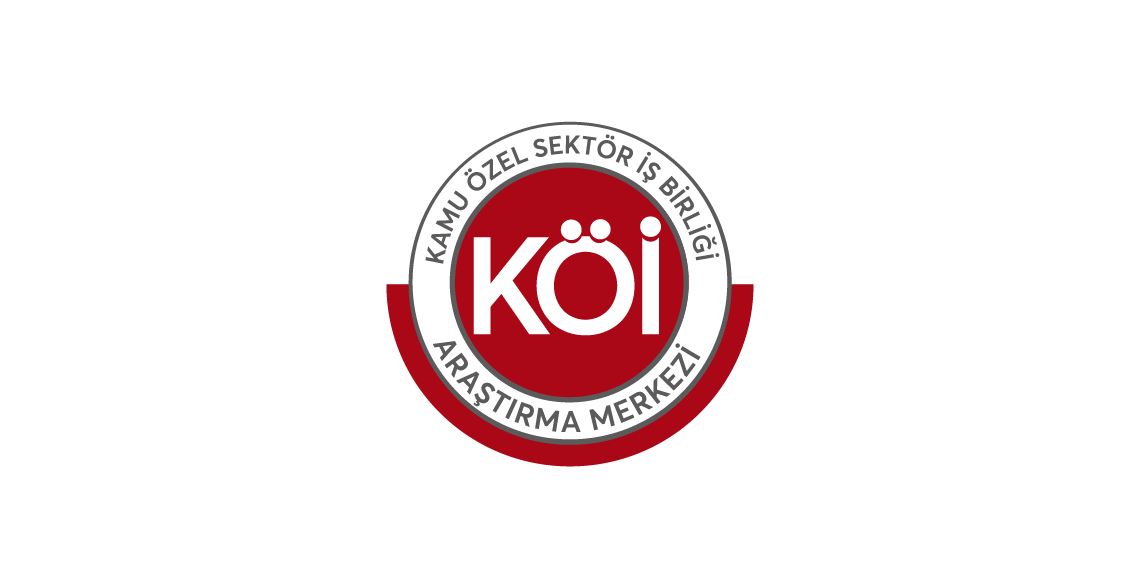Brazil – After a successful first round of structuring Street Lighting PPPs —including in seven Brazilian municipalities with several contract agreements already in place, such as Aracaju, Belém and Campinas— the partnership between Caixa Economica Federal (CAIXA) and International Finance Corporation (IFC) brings to the market a new round of projects with innovations, more safety and greater attractiveness to the sector.
Through these new projects, more than 200,000 street lighting points will be modernized in five cities. They will include the implementation of LED luminaires—a more sustainable and efficient technology—resulting in average energy savings of 55% and reduction in annual emissions of more than 8,000 tons of CO2. They will also make the cities’ combined 1.8 million residents more safe and reduce gender-violence crimes. The PPP includes the installation of special lighting projects in places of historical and cultural relevance, the implementation of an Operational Control Center for real-time management of the city’s street lighting, and customer service improvements such as free face-to-face support, an Internet site and a mobile application.
On March 17th, the municipality of Ponta Grossa (PR) published the Request for Proposal notice nº 02/2023, which aims to provide street light services through a public-private partnership (PPP). The request for the PPP proposal and its bidding documents are available on the municipality website, and the bidders should deliver their proposal on May 2nd. The auction will take place on May 11th at Bolsa de Valores (B3) in São Paulo, Brazil. More information regarding the PPP is available at the project website.
The Ponta Grossa PPP project encompasses more than 47 thousand street lighting points to be modernized through US$ 12 million in private investments, resulting in direct benefits for more than 390 thousand inhabitants. The entire process was led by the Municipality of Ponta Grossa, which will also be responsible for the management of the contract agreement, ensuring that the project meets the particularities and demands of the population.
Also, in March 2023, the Request for Proposal for the Olinda and Ribeirão Preto projects is expected to be published while the others (Foz do Iguaçu and Timon) are still in the structuring phase and are expected to be ready for public consultation in the coming months. More information about the projects is available on the website of the respective City Halls:
Ponta Grossa
- SL points: 47,000
- Investments (CAPEX): R$ 60 million / US$ 12 million
- Project Website: PPP – Street Lighting (pontagrossa.pr.gov.br)
- RfP Date: March 17th, 2023
- Proposal Submission Date: May 2nd, 2023
- Auction Date: May 11th, 2023
Ribeirão Preto
- SL points: 83,000
- Investments (CAPEX): R$ 103 million / US$ 20 million
- Project Website: PPP – Street Lighting (ribeiraopreto.sp.gov.br)
- RfP Date: March 2023
- Proposal submission Date: May 2023
- Auction Date: May 2023
Olinda
- SL points: 26,000
- Investments (CAPEX): R$ 32 million / US$ 6 million
- Project Website: PPP – Street Lighting (olinda.pe.gov.br)
- RfP Date: March 2023
- Proposal Submission Date: May 2023
- Auction Date: May 2023
Through the three projects, about US$ 38 million will be invested over the 13 years of contract agreement, promoting better use of public spaces at night — especially in historical places — bringing better structure to the urban centers, more security for the population, improving services and promoting financial savings for the municipalities.
The project was developed with technical advice from the IFC and CAIXA, in close coordination with the Investment Partnership Program (PPI) and the Civil House. The studies also had advice and financial support from the Concessions and Partnerships Support Fund (FEP Caixa), the World Bank, and the Global Infrastructure Facility (GIF). The project structuring has also benefited from the technical/financial consultancy provided byEY and the legal advisory from Manesco, Ramires, Perez, and Azevedo Marques.
This working group has acquired great experience from structuring Street Lighting PPP and, in order to further enhance the expansion of the sector and reduce transaction costs, included a few innovations in this second round, such as:
- Replication on a National Scale and Document Standardization: Standardization of the Bidding Documents (Request for Proposal, Contract Agreement and Annexes) was carried out, including all Reports, Presentations, Financial Model, Work Plans and Communication, etc. This measure aims to reduce project structuring timeline and simplify replication on a national scale, which is necessary given the massive pipeline ahead. CAIXA already has 37 Street Lighting projects in its portfolio and, recently, has concluded an expression of interest process approving: (i) 107 additional municipalities, including 5 capitals; and (ii) 36 municipal consortia, which, altogether comprise around 270 municipalities.
- Reducing Paperwork: To reduce the paperwork; specific project related information was included in RfP’s Appendix, Glossary, where all the definitions are added.
- Contract Management Simplification: To ensure that municipalities can manage PPP contracts, regardless of size and technical capacity, the team simplified contractual management through “self-management” procedures, such as reducing interactions between the Parties, through the adoption of “tacit acceptances” for the issues formulated.
- Knowledge Transfer: In collaboration with the World Bank, a training program is being carried out for CAIXA’s team, in order to improve its technical capacity to replicate projects on a national scale. Also, after Request for Proposal publication of each project, specific training will be conducted for the municipalities, to ensure their readiness and technical capacity to manage the PPP contract agreement.
- Crosswalks and Bike Lanes: To increase the safety of pedestrians and cyclists, Street Lighting projects for crosswalks and bike lanes were included in the scope of the PPP.
- Monthly Early Termination Payment: Projects also provide monthly installments payment mode in early termination scenarios. Therefore, the concessionaire may choose to either (i) receive the monthly installments; or (ii) securitize these receivables to a financial institution and receive the amount of the indemnity in cash.
- Payment Mechanism Changes to Cover the Expansion of the Street Lighting Network: In comparison with the first round, a more flexible compensation system is provided where the concessionaire receives an upfront payment for installation of additional Street Lighting points as requested by the Granting Authority; while the additional costs to maintain this Street Lighting point are balanced and included on the Availability Payment for operating expenses (OPEX).
- Ancillary Revenue: In previous projects, the concessionaire had to request the Granting Authority the right to exploit a particular service; and negotiate the percentage of its revenue that would be shared. This process is lengthy and highly technical, and most municipalities lack the capability to handle it. For the new projects a few services are pre-authorized, as well as the respective revenue share percentages defined in the contract agreement according to the type of service explored.
Additional Information





